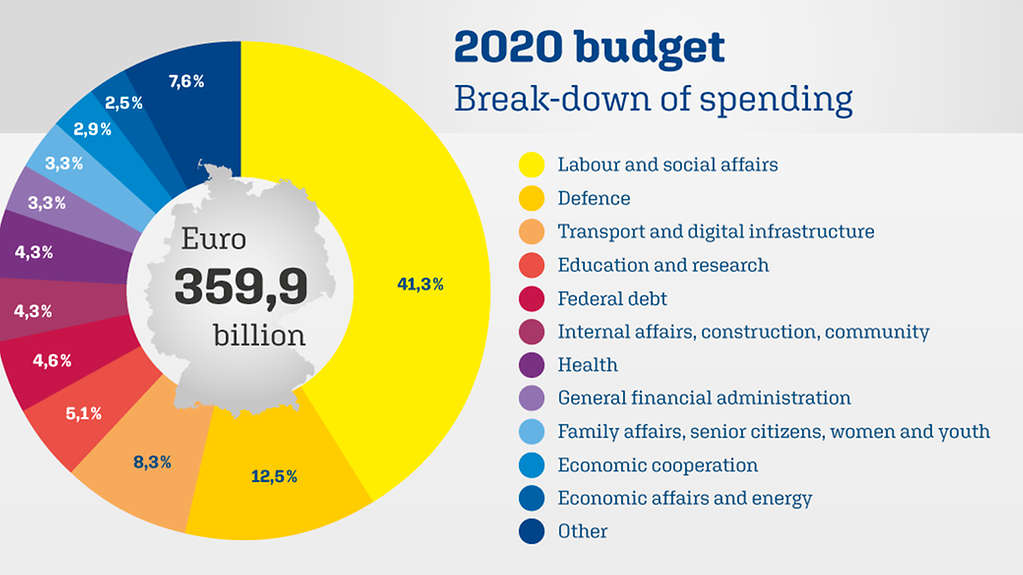Federal budget 2020 adopted
A stable financial policy for a modern, forward-looking country - without taking on new debts. This remains an important concern for the Federal Government for the next few years. The Federal Cabinet has adopted the government draft for the federal budget 2020.
2 min reading time

The majority of the federal budget is assigned to Labour and Social Affairs.
Photo: Bundesregierung
Once again, the federal budget comes out with no new debts – for next year and for the whole planning period to 2023. This shows that the Federal Government is maintaining its solid and measured budget policy. Spending of EUR 359.9 billion is planned for next year – one per cent more than 2019. By 2023 spending is set to rise to EUR 375.7 billion.
What are the Federal Government's focus areas?
Although the German economy continues to grow as forecast, growth is slower than in previous years. This is impacting tax revenues and therefore it is important to plan ahead and set the right priorities for the future. The aim is for people across Germany to be able to share in the country's economic success.
Social cohesion and investment for a modern, forward-looking country – these are the goals the Federal Government is working towards in its budget planning. Education and research, infrastructure and digitalisation are particularly important in this respect.
The Federal Government will also strengthen its climate protection efforts in order to cut greenhouse gas emissions. The climate cabinet (Klimakabinett) is currently working on further measures to this end.
The burden on families is to be eased further
The Federal Government wants to further ease the burden on families and will therefore raise child benefits and child allowances again in 2021. In addition, the solidarity surcharge will not apply to 90 per cent of payers in 2021. The federal budget provides for further tax cuts that will enable regional governments (Länder) and municipal authorities to reduce fees for daycare facilities for children and improve childcare provision.
The Federal Government is also providing more support for regional governments to build affordable rented accommodation. And with its ‘Baukindergeld’ (housing grant for families with children), the Federal Government is also enabling many families to buy property.
To ensure that Germany remains innovative and future-proof, the Federal Government is strengthening the economy with new targeted stimulus – for example, using the forward-looking technology of artificial intelligence.
More money is also earmarked for defence and international cooperation so that Germany continues to uphold its international responsibility.
The German Bundestag and the German Bundesrat are now holding in-depth consultations on the government draft. The German Bundestag is likely to adopt the budget in November. The approval of the German Bundesrat is not required, but it can state its opinion on it. Find out here how the federal budget is drawn up.